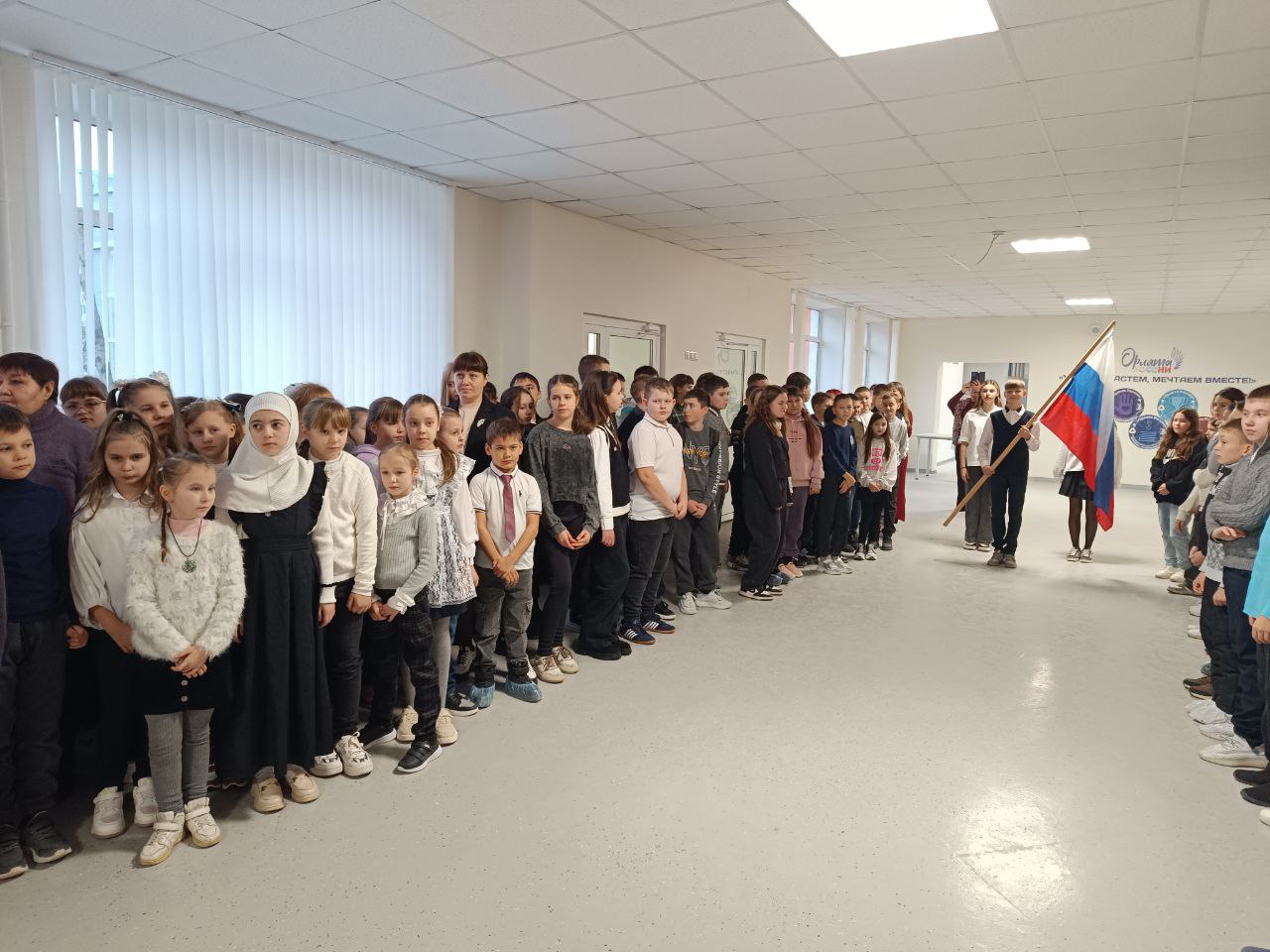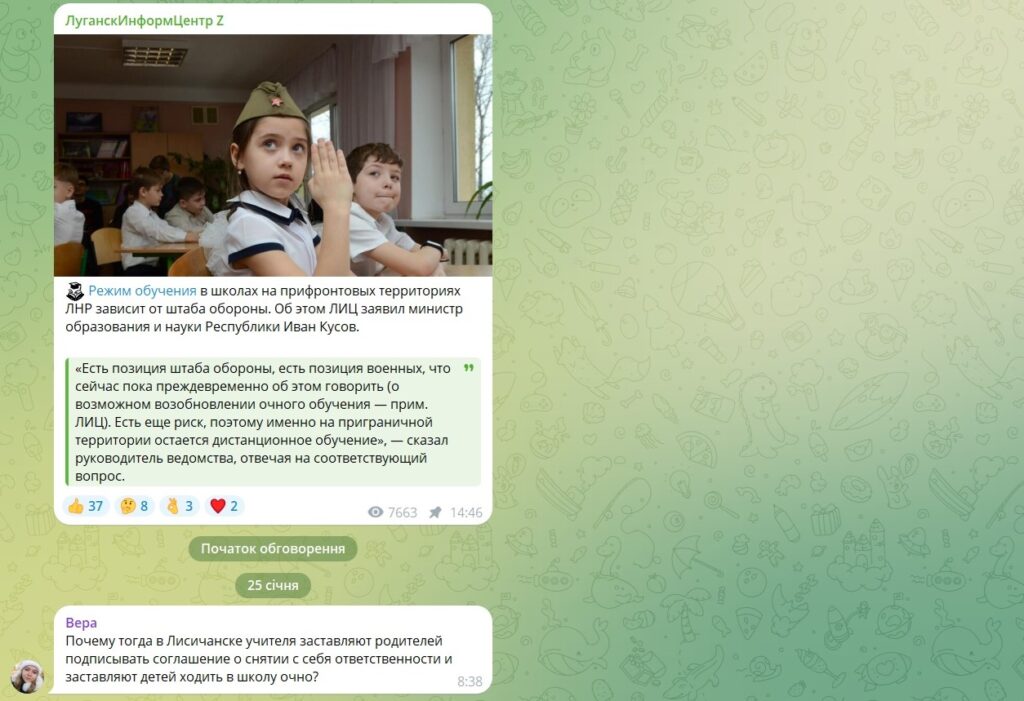

Children in frontline towns of the occupied Luhansk region have to attend schools despite the formal suspension of full-time education
Children in the frontline towns of Lysychansk, Kreminna, Siverskodonetsk, Rubizhne and nearby villages have to attend school despite the fact that the occupation authorities have ordered remote learning, OstroV reports, citing local residents.
“As a rule, children come to school, are given an assignment, and then go home,” a resident told OstroV. According to him, there is no internet connection in settlements close to the combat zone, which makes online learning impossible.
“There is no Internet, nor mobile phone service there at all. One could pick up the Internet only somewhere near a location of the Russian military, but this does not solve the problem of distance learning at all,” another OstroV interlocutor explained.
The occupation authorities admit that they force children to attend school, especially on Russian holidays.
For example, the social media page of Sievierodonetsk Specialised School No. 1 reported that “on 27 January, a significant patriotic event took place in our school – the grand opening of the Year of the Defender of the Fatherland… Also, the solemn line-up was dedicated to the start of the ‘100 Days to the Great Victory’ campaign, which aims to improve historical literacy, patriotic education of young people and involvement in events dedicated to the 80th anniversary of the Victory in the Great Patriotic War.”
Judging by the photos, the “holiday” brought together several dozen children.
In addition, on 29 January, the same school gathered children for a puppet theatre performance by visitors from the Russian Volgograd region.
According to residents, teachers force parents to write “acquittances” stating that they take responsibility for the safety of their children.
At the same time, the “minister of education and science” of the Luhansk “republic” Ivan Kusov continues to claim that children are studying remotely.
“There is a position of the defence headquarters, there is a position of the military that it is too early to talk about this (the resumption of full-time education. – ‘OstroV’). There is still a risk, so distance learning remains in the border area,” the Russian Lugansk Information Centre media outlet quoted Kusov on 24 January.

“Why then do teachers in Lysychansk force parents to sign an agreement to disclaim liability and make their children attend school in person?” one of the readers commented on Telegram.